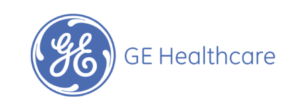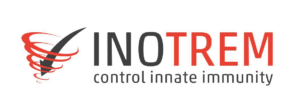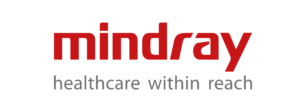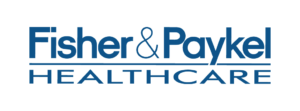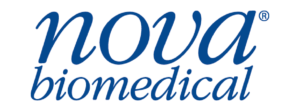ESICM LIVES 40
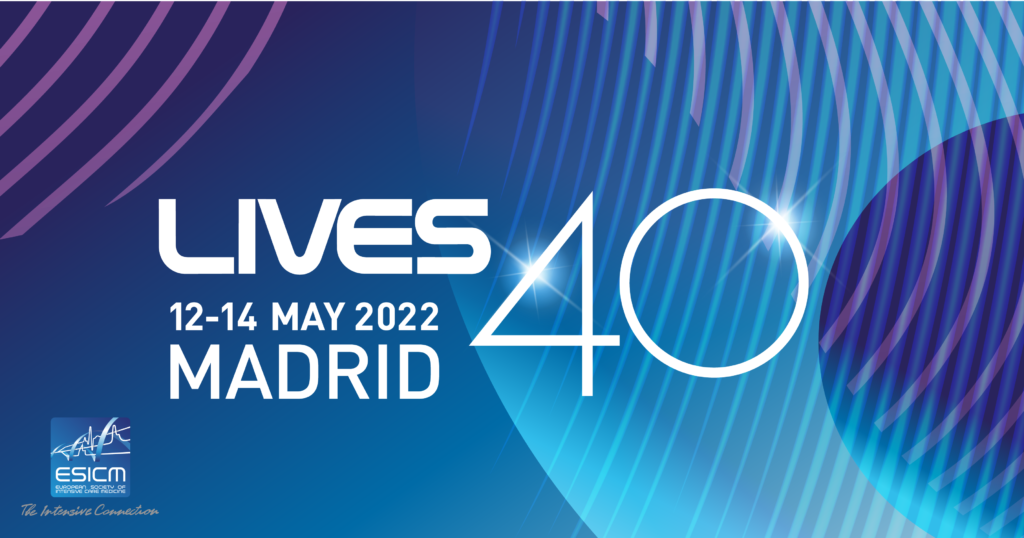
LIVES 40, Madrid, May 12-14, 2022 (Hotel NH Eurobuilding Madrid)
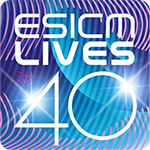 2022 marks the 40th anniversary of ESICM and what a journey it has been! We now count nearly 10,000 members from 132 countries: physicians, nurses, allied healthcare professionals, scientists or trainees from Europe and beyond who comprise our global intensive care community.
2022 marks the 40th anniversary of ESICM and what a journey it has been! We now count nearly 10,000 members from 132 countries: physicians, nurses, allied healthcare professionals, scientists or trainees from Europe and beyond who comprise our global intensive care community.
We are excited to celebrate this milestone with our community face-to-face, with an exclusive and unique on-site event in Madrid!
Join our line-up of international speakers at LIVES 40 and advance your knowledge by attending multidisciplinary talks and scientific sessions encompassing all branches of intensive care medicine, as well as hands-on educational sessions, discussions and debates.
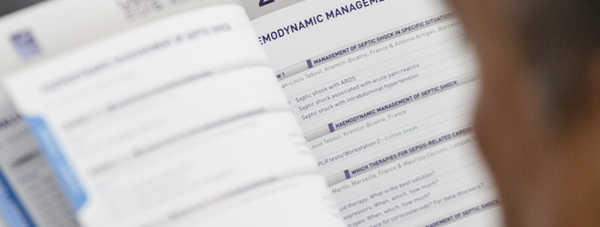

GENERAL INFORMATION
We are back to face-to-face!
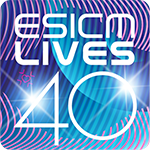 General Information
General Information
CELEBRATE THE 40 YEARS OF THE SOCIETY WITH US!
2022 will mark the Society’s 40th anniversary and we are happy to celebrate with you, face-to-face, in Madrid, 12-14 May!
For three days, you will have the opportunity to join a network of international colleagues and speakers and attend educational workshops, multidisciplinary talks and scientific sessions encompassing all branches of intensive care medicine.
We look forward to meeting you, in person, in Madrid. In the meantime, we would like to use this opportunity to give recognition to the tremendous healthcare professionals throughout the world who are caring for so many patients during this pandemic.
Together we are Intensive Care.
Please note. LIVES 40 Madrid is a special event that does not replace ESICM's annual congress, LIVES 2022 Paris.
Headquarters & Conference Venue
NH Eurobuilding
PC floor (1st floor)
Calle Padre Damián, 23
28036 Madrid
Spain
Hotel NH Collection Madrid Eurobuilding | nh-hotels.com
The NH hotel Eurobuilding is located close to 2 metro stations, and can be easily reached from the city’s airport and all major rail stations:
- Line 8: Aeropuerto - Nuevos Ministerios, to station “Colombia” + 10 mn walking
OR: - Line 8: Aeropuerto - Nuevos Ministerios, to station “Nuevos Ministerios” + Line 5 Puerta del Sur – Hospital Infanta Sofia to station “Cuzco” + 4 mn walking
Onsite Registration Desk Hours
Thursday 12 May ~ 07:15 - 18:30
Friday 13 May ~ 07:30 - 18:00
Saturday 14 May ~ 07:30 - 12:00
Cocktail party
 Networking opportunities at the Cocktail Party
Networking opportunities at the Cocktail Party
Join the Society's 40th-anniversary celebration during the conference!
On the first day, Thursday, May 12, starting at 18:40 hrs and until 20:30 hrs, enjoy a cocktail reception and buffet in the Exhibition area during the Poster presentations.
Take advantage of the return to face-to-face congress to connect with international colleagues and network to find opportunities for collaboration.
PROGRAMME
Abstracts
Poster Guidelines & Instructions
A platform to record and upload your poster presentation will be available from 13 April until 04 May, an individual link has been sent along with the guidelines.
If you are the submission manager, and not the presenting author, please note that further technical communications for uploading have only be sent to the speaker.
Please be aware that all presenting authors must register for the conference; the registration fee will not be waived.
Poster Sessions
Your presentation should be based on one single slide.
Please carefully read the following GUIDELINES.
We recommend that you use one of the two following slide templates: TEMPLATE
One or two chairpersons will organise these poster corner sessions. You will have four minutes to present your single slide on a 50-inch flat screen with an additional three-minute period for discussion (questions from the chairperson and/or from the audience).
Please arrive at the allocated screen in the Exhibition Area a few minutes before your session. Please be on time and do not exceed your presentation time.
Review Process
The submitted abstracts have been examined anonymously by the ESICM Reviewers. We thank the abstracts submitters and congratulate those selected. We also encourage the authors not selected to resubmit for the ESICM LIVES 2022 in Paris.
The authors have been informed of acceptance/rejection of their abstract by email on 09 March. Presentation details have been sent by email on 25 March. All abstracts selected for mandatory presentation at the Conference will be either presented as oral or e-poster presentations. There will be no publication in the ICMx Journal (no Abstract Book) for LIVES 40.
The abstract submission system closed on 03 February 2022. Abstract submitters received an e-mail confirmation immediately after submitting their abstract. If you did not receive this e-mail, please contact the Abstract Department.
Five Best Abstracts Awards
Presenters of the 5 best abstracts will receive free registration for one of our forthcoming ESICM events (EuroAsia Delhi 2022 or LIVES Forum Athens 2022 or LIVES Paris 2022 or one e-Master Class).
Abstracts selected by the jury will be presented in our session Abstract Award Winning Session during LIVES 40 in Madrid on Saturday 14 May between 09:30-10:45 in Room Gran Madrid.
- Impact of dexamethasone on the incidence of ventilator-associated pneumonia in mechanically-ventilated COVID-19 patients: a propensity-matched cohort study - A. Guzzardella (Milan, IT)
- Outcomes of patients with initial acute respiratory failure on veno-venous extracorporeal membrane oxygenation (ECMO) requiring additional circulatory support by VVA-ECMO - R. Erlebach (Zurich, CH)
- Derivation of clinical phenotypes in critically ill COVID-19 patients - N. Bruse (Nijmegen, NL)
- Optimisation of piperacillin-tazobactam dosing regimen for critically-ill patient with sepsis: the OPT-TAZ population pharmacokinetics study - S. Sarfati (Rouen, FR)
- Non-invasive ventilation in elderly patients with COVID-19 – a prospective cohort study - K. Polok (Kraków, PL)
Notes:
- LIVES 40 will be an exclusive on-site event. All presenting authors must register for the conference and present their abstract in Madrid.
- Registration fees for the presenting author will not be waived.
- Submission of an abstract constitutes a formal commitment by the author to present the abstract at the session and the time decided by the Conference Committee. One of the co-authors can take over if needed.
- It is the authors' responsibility to submit abstracts in perfect order with no errors in spelling and grammar. Abstracts will not be corrected.
- ESICM does not accept case reports.
- The authors agree that ESICM will record the presentation for subsequent use as it deems appropriate.
- The signing author certifies that any work with human or animal subjects related in this abstract complies with the guiding principles for experimental procedures set forth in the Declaration of Helsinki and related publications.
Educational Programme
 Educational Programme
Educational Programme
Educational Workshops
It is time to return to in-person learning! LIVES 40 offers multiple hands-on sessions to learn new practices for clinical effectiveness, covering the hottest Intensive Care topics.
If you have participated in one of our digital Master Classes, you can benefit from a 30% discount on registration fees.
Do you wish to attend more than one workshop? Contact the ESICM Registration Department to benefit from a 50 EUR net discount on the registration fee of a second workshop of your choice.
Please note: An application will be made to the UEMS-EACCME® for CME accreditation of each workshop.
One 4-hour workshop, limited to 50 participants.
This workshop aims to provide hands-on experience. By the end of this workshop, the participants will be able to:
- Apply and use of HFNO in the critically ill
- Optimise the use of video laryngoscopy in ICU
- Select suitable patients suitable for awake tracheal intubation, preparation and performance using a flexible bronchoscope
- Use of supraglottic airway devices in difficult airway management
- Conduct percutaneous emergency cricothyroidotomy for rescue oxygenation
- Carry out percutaneous tracheostomy in ICU
Content
- Peri-intubation oxygenation strategies
- Other strategies to improve outcomes
- Station 1: High-Flow Nasal Oxygen
- Station 2: Supraglottic airway devices and Videolaryngoscopes
- Station 3: Awake tracheal intubation using the flexible bronchoscope
- Station 4: Emergency cricothyroidotomy and Percutaneous tracheostomy
Thanks to the suppport of

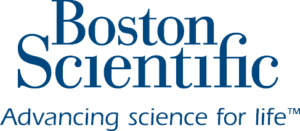
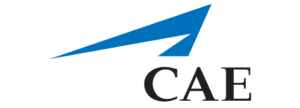


Two 4-hour workshops, each limited to 30 participants.
This workshop is a joint event between EuroElso & ESICM.
Learning objectives
- Understand the respective indications and basic management of V-A and V-V ECMO
- Identify basic circuit components & mechanical troubleshooting
- Understand the physiology of ECMO-patient interactions
- Identify and manage drainage insufficiency
- Identify and manage recirculation (V-V)
- Identify and manage LV distension (V-A)
- Identify and manage differential oxygenation (V-A)
- Understand the basics of weaning from V-A and V-V ECMO-support
- Gain the basic skill set to perform an ultrasonographic vessel assessment and echo guided percutaneous ECMO cannulation (Seldinger technique)
Content
- Interactive clinical case on V-V and V-A
- Station 1: Cannulation station
- Station 2: V-V station
- Station 3: V-A station
- Station 4: Troubleshooting/Basics of priming, elements of the circuit
Thanks to the support of


Please note. This workshop is the natural hands-on complement to our homonymous digital Master Class.
Two 4-hour workshops, each limited to 40 participants.
The workshop will consist of clinical case discussions, practical demonstrations, as well as hands-on sessions. By the end of this workshop, the participants will be able to:
- Remind the determinants of arterial pressure and to explain how to interpret it at the bedside
- Underline how different cardiac output monitoring devices work and to detail their respective indications
- Remind the means for assessing tissue oxygenation and to discuss their drawbacks and advantages
- Discuss the practical use of different haemodynamic variables during simulation and clinical cases
Content
- Fundamentals in Haemodynamic Monitoring
- Clinical case debate and practical demonstration: determinants of arterial pressure and their interpretation at bedside; cardiac output monitoring devices simulation
- Station 1: Practical use of different haemodynamic variables
- Station 2: Assessment of tissue oxygenation
Thanks to the support of




Please note. This workshop is the natural hands-on complement to our homonymous digital Master Class.
Two 4-hour workshops, each limited to 40 participants.
This workshop aims to provide hands-on experience. By the end of this workshop, the participants will be able to:
- Assess the respiratory mechanics of patients with ARDS and in patients with chronic obstructive pulmonary disease and set up a ventilator
- Understand the role of oesophageal pressure monitoring in assessment of trans pulmonary pressure and breathing effort
- Understand the principles of airway pressure release ventilation and use in clinical practice
- Use lung and diaphragmatic ultrasound and electrical impedance tomography
Content
- Master clinical case on ARDS
- Station 1: Assessment of Lung mechanics of ARDS patient; Setting the ventilator: initial settings for ARDS
- Station 2: Measuring oesophageal and trans pulmonary pressure
- Station 3: Airway pressure release ventilation
- Station 4: Demonstration of lung and diaphragmatic ultrasound and electrical impedance tomography
Thanks to the support of




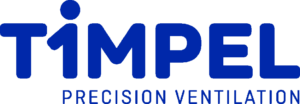
Please note. This workshop is the natural hands-on complement to our homonymous digital Master Class.
Two 4-hour workshops, each limited to 40 participants.
This workshop aims to provide hands-on experience. By the end of this workshop, the participants will be able to:
- Learn how to setup a CRRT circuit
- Identify practical issues associated with vascular access and filter
- Manage and understand common alarms
Content
- The CRRT Circuit
- Scenario and Setup using different type of devices
Thanks to the support of

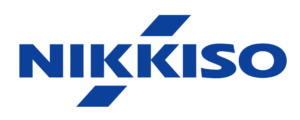
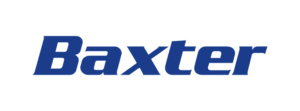

Please note. This workshop is the natural hands-on complement to our homonymous digital Master Class.
Please note: Registration for the conference is a prerequisite for signing up for the workshops. Seats are limited and will be reserved on a first-come, first-served basis.
Case-Based Fundamentals on Sepsis & Infection
Fundamental concepts of intensive care explained in English and Spanish by top experts on real cases and MCQs.
Learning objectives
- Review the current knowledge of the epidemiology and pathophysiology of infections, recognition, source identification and initial treatment (antibiotics, organ support and fluid therapy)
- Employ antibiotic stewardship: PKPD of antibiotics, biomarkers, duration and de-escalation of antibiotic therapy as well as preventive strategies
- Diagnose and manage septic shock
Content
- Epidemiology and pathophysiology of infections
- Recognition, source identification and initial treatment
- Antibiotic stewardship: PKPD of antibiotics, biomarkers, duration and de-escalation of antibiotic therapy as well as preventive strategies
- Diagnosis and management of septic shock
Seats will be limited! These sessions can only host up to 100 participants per CBF!
The Case-Based Fundamentals are included in the conference's fees.
Breakfasts Meet the Experts (fully booked)
Do you have a burning question for our profession’s leading experts and best-known speakers? Join us for this 60-min experts’ breakfast on End-of-Life Care and Sepsis & Severe Infections.
The breakfast is a great opportunity to meet and discuss current and emerging issues with experts in the field of end-of-life care in an informal setting.
Learning objectives
- To explain end-of-life principles, goals and preferences
- To discuss the role of palliative care
- To debate the limitation of life-sustaining treatments
- To discuss End-of-Life decisions with members of the health care team, promote their participation in decision-making and understand the role of MDT
- To communicate effectively with relatives who may be anxious, angry, confused, or litigious
Topics
- End-of-life principles, goals and preferences
- The role of palliative care
- The limitation of life-sustaining treatments
- Communication and shared decision-making in End-of-Life Care
The breakfast is a great opportunity to meet and discuss current and emerging issues with experts in the field of sepsis and severe infection in an informal setting.
Learning objectives
- To discuss the diagnosis and early recognition of sepsis
- To debate the antibiotic treatment
- To explain the organ support
Topics
- Diagnosis and early recognition of sepsis
- Antibiotic treatment
- Organ support
CME Credits
 CME Credits
CME Credits
The ESICM LIVES 40 Madrid, Madrid, Spain, 12/05/2022-14/05/2022 has been accredited by the European Accreditation Council for Continuing Medical Education (EACCME®) with 20 European CME credits (ECMEC®s). Each medical specialist should claim only those hours of credit that he/she actually spent in the educational activity.
Through an agreement between the Union Européenne des Médecins Spécialistes and the American Medical Association, physicians may convert EACCME® credits to an equivalent number of AMA PRA Category 1 CreditsTM. Information on the process to convert EACCME® credit to AMA credit can be found at www.ama-assn.org/education/earn-credit-participation-international-activities
Live educational activities, occurring outside of Canada, recognised by the UEMS-EACCME® for ECMEC®s are deemed to be Accredited Group Learning Activities (Section 1) as defined by the Maintenance of Certification Program of the Royal College of Physicians and Surgeons of Canada.
REGISTRATION
Registration Information
 Registration Information
Registration Information
NB: The fees are net and 10% Spanish VAT will be added, if applicable.
CONFERENCE FEES (ONSITE & VIRTUAL)
| Special Fee 24-25 January |
Early fees 25 Jan to 29 Mar |
Standard fees 30 Mar to 14 May |
|
| ESICM Members | 130 € | 260 € | 370 € |
| Non Members | NA | 430 € | 540 € |
| ESICM Members in Training | 90 € | 180 € | 290 € |
| Non Members in Training | NA | 350 € | 460 € |
| Nurses & AHP / Medical Students | NA | 0 € | 0 € |
| *LMIC ESICM Members | 50 € | 100 € | 210 € |
| *LMIC Non Members | NA | 160 € | 270 € |
WORKSHOPS FEES (seats limited)
| If participating to the digital Master Class | Early fees 24 Jan to 29 Mar |
Standard fees 30 Mar to 14 May |
| All participants (members & non-members) | 90 € | 200 € |
| If NOT participating to the digital Master Class | Early fees 24 Jan to 29 Mar |
Standard fees 30 Mar to 14 May |
| All participants (members & non-members) | 130 € | 240 € |
Learn more about the workshops, here.
BREAKFASTS MEET THE EXPERTS (seats limited)
The fee will be 25 € for all participants. Learn more about these sessions, here.
Please note: Pre-registration for the conference is mandatory to book any workshop or breakfast.
NB:
- Registrations for more than 10 (ten) participants will be handled separately as a group booking. Please contact the ESICM Registration Department by Email.
- We also offer free registration for Nurses, Allied Health Professionals, Medical Students and Media Representatives. Please send a proof of your status (professional card, press ID, Student ID) to the ESICM Registration Department by Email after you have submitted your online registration.
*Low and Lower Middle Income Country (LMIC), as per the World Bank classification.
Terms and Conditions for Registration
If you are not yet a member of ESICM, there is no better time to join.
Join now! and benefit from this offer and all the other advantages membership of our global intensive care community brings.
More information about ESICM membership fees, HERE
Please note. LIVES 40 Madrid is a special event that does not replace ESICM's annual congress, LIVES 2022 Paris. There will be no publication in the ICMx Journal (no Abstract Book) for LIVES 40.
REGISTRATION DEPARTMENT
K.I.T. Group GmbH
Association & Conference Management
Kurfürstendamm 71
10709 Berlin
Germany
Tel: +49 (0)30 24 603 319
Email
**** Important Alert ****
There are an increasing number of fraudulent websites and individuals that impersonate ESICM and our events, but that are in no way associated with ESICM.
We would like to alert all our members and delegates to be aware of companies claiming to be ESICM partners and we strongly advise you to only use our official events registration partner, KIT.
Please also pay attention to fraudulent websites. There is only one ESICM LIVES 40 Website and ESICM’s only official provider of housing and registration is KIT Group GmbH.
ESICM will not accept any responsibility for bookings made via unofficial websites and agencies.
Hotel Accommodation
 Hotel Accommodation
Hotel Accommodation
To book the last available rooms, please contact Ms Ana Gutierrez Lopez Romero, a.gutierrez@nh-hotels.com.
The NH Collection Madrid Eurobuilding hotel is a stylish retreat in the city’s financial district. Re-opened in September 2014, it offers a new, ultra-contemporary look and is considered one of the best hotels in Europe for business or leisure.
- In the financial district, minutes from Paseo de la Castellana, one of the city’s main avenues
- In the same street as Real Madrid’s famous Bernabeu Stadium and surrounded by restaurants and boutiques
- Home to the only 3 Michelin starred restaurant in Madrid, DiverXO by David Muñoz
The hotel's 412 rooms are spread across 15 floors, with some of them offering fabulous views. They come in all shapes and sizes – everything from Superior Rooms to the luxury Presidential suite.
For a unique experience, the hotel recommends the VIP level. This area offers premium rooms and suites as well as amenities including a private reception and breakfast area, courtesy bar and complimentary access to the fitness and wellness center.
- Spacious, comfortable rooms
- VIP level with exclusive services and amenities
- 24/7 room service
The Hotel is home to one of the biggest convention centers in the city, ideally suited to business travelers.
- 32 state-of-the-art function rooms
- Telepresence system that allows high quality audio and video communication between all participants physically in the meeting and those connecting remotely
- Largest curved LED screen in a European hotel
- Pioneer in the industry by investing in the future and supporting innovation




SPONSORSHIP & EXHIBITION
Sponsorship Opportunities
 Sponsoring
Sponsoring
Why support LIVES 40?
Our focus is on optimising the interaction between the faculty and audience to enhance the learning process for all our delegates.
We will be actively encouraging the exchange of knowledge between clinical practitioners, researchers, established investigators, physicians, nurses, allied health professionals, doctors in training and medical students, offering multiple interactive sessions and networking opportunities.
What are the expected educational outcomes?
In summary, LIVES 40 allows delegates to:
- update their knowledge
- discuss real life cases to help them diagnose and treat patients in their daily practice
- receive data and information about the latest research findings in Intensive Care
- take part in state-of-the art symposia to complement and complete their knowledge of Intensive Care
Sponsorship/Exhibition
For questions regarding sponsorship and the ESICM LIVES 40, please contact:
Joel Alexandre
ESICM CEO
Email address: joel.alexandre@esicm.org
Elise Maquestiaux
ESICM Events & Sponsors Coordinator
Email address: elise.maquestiaux@esicm.org
Please note. LIVES 40 Madrid is a special event that does not replace ESICM's annual congress, LIVES 2022 Paris.
MEDTECH EUROPE CODE
This event is compliant with the MedTech Europe Code of Ethical Business Practice.
Sponsors & Exhibitors
 Sponsors & Exhibitors
Sponsors & ExhibitorsThe ESICM would like to wholeheartedly thank the following companies who are entitled to be recognised as:





